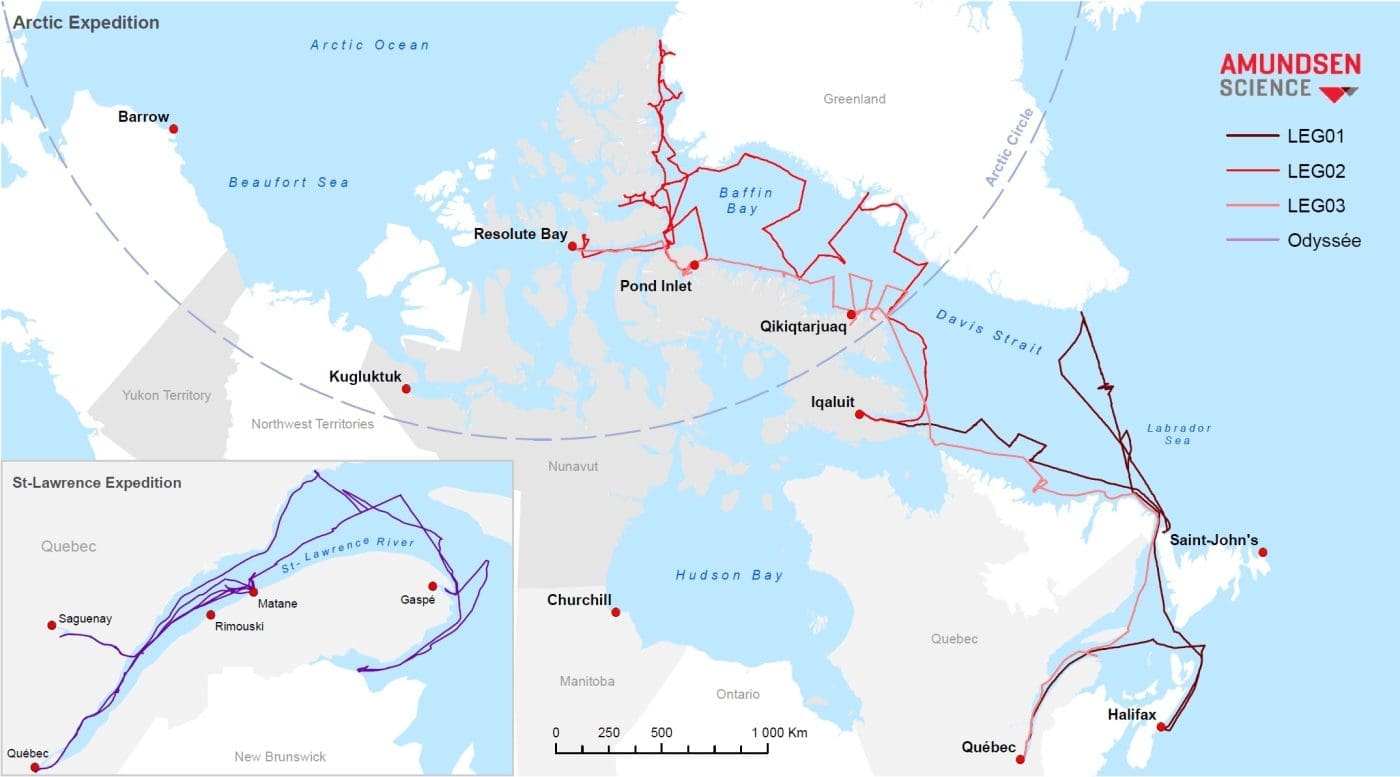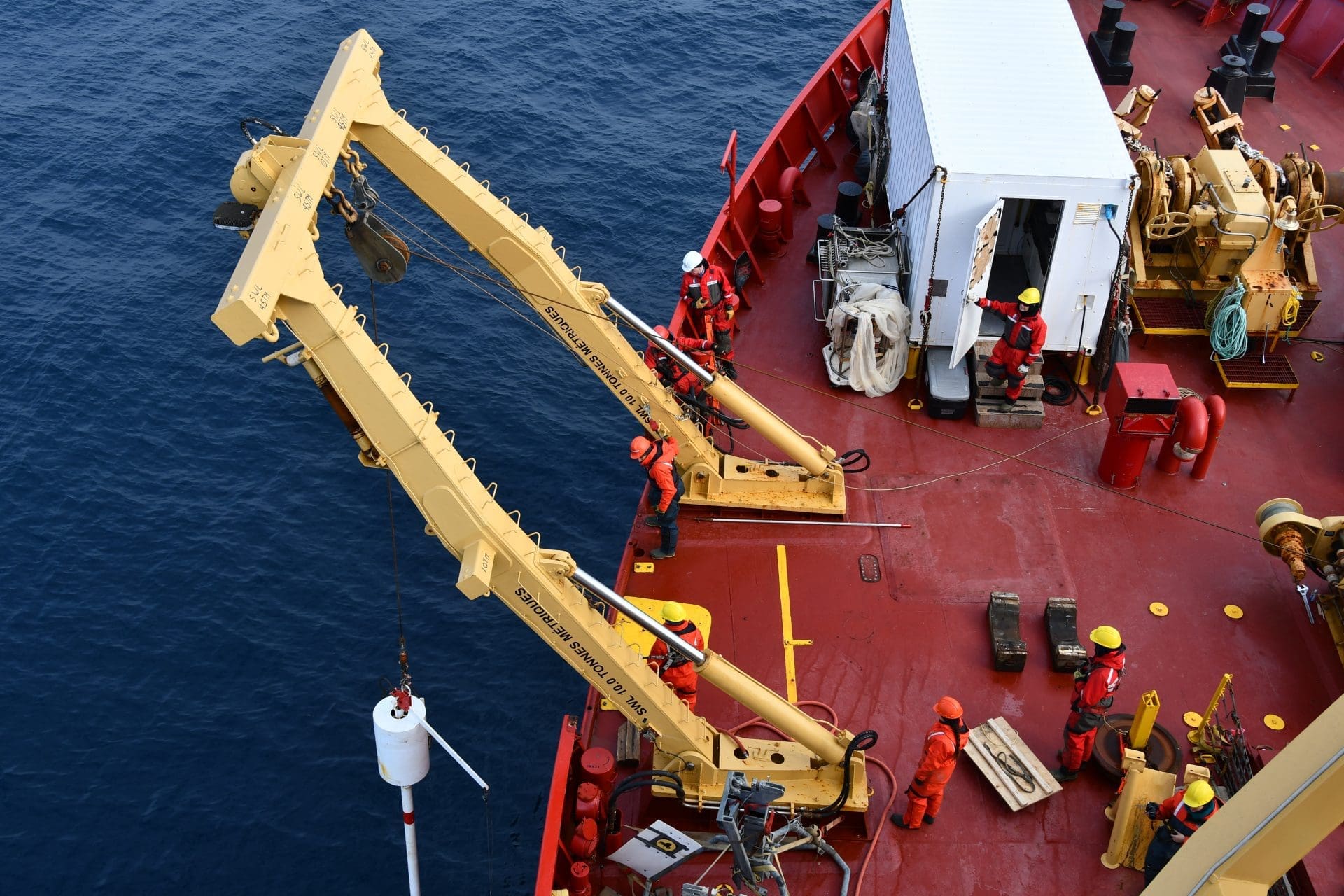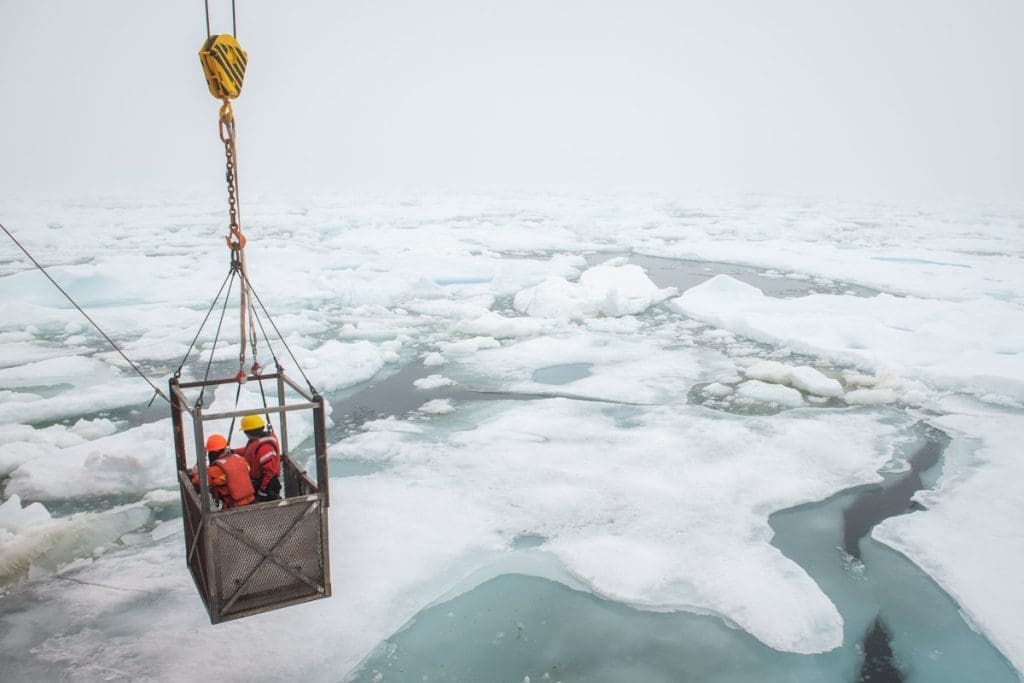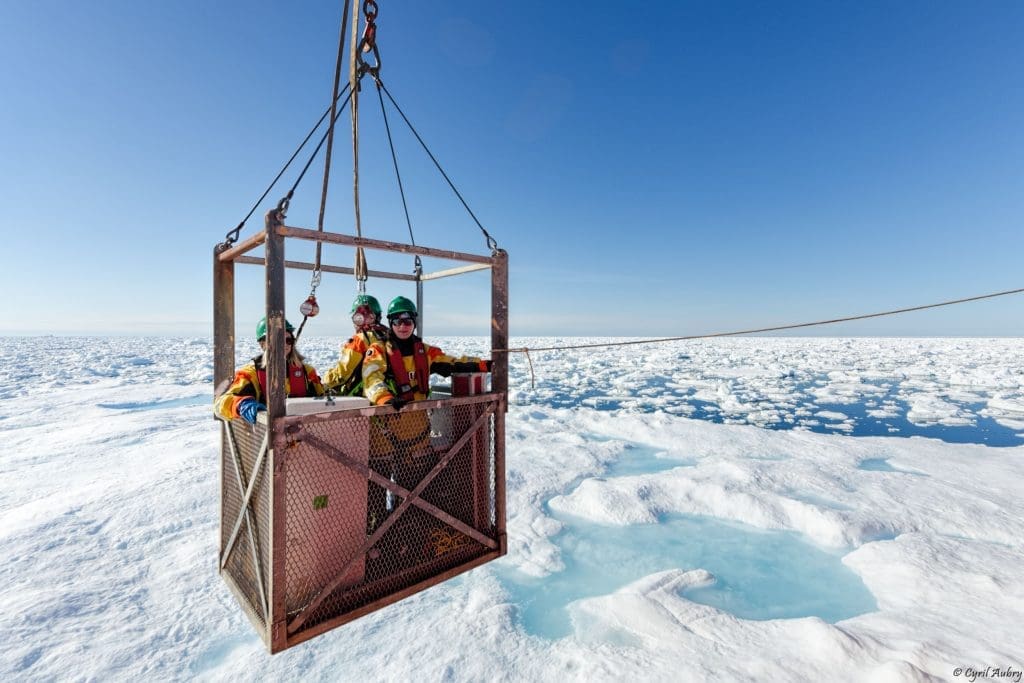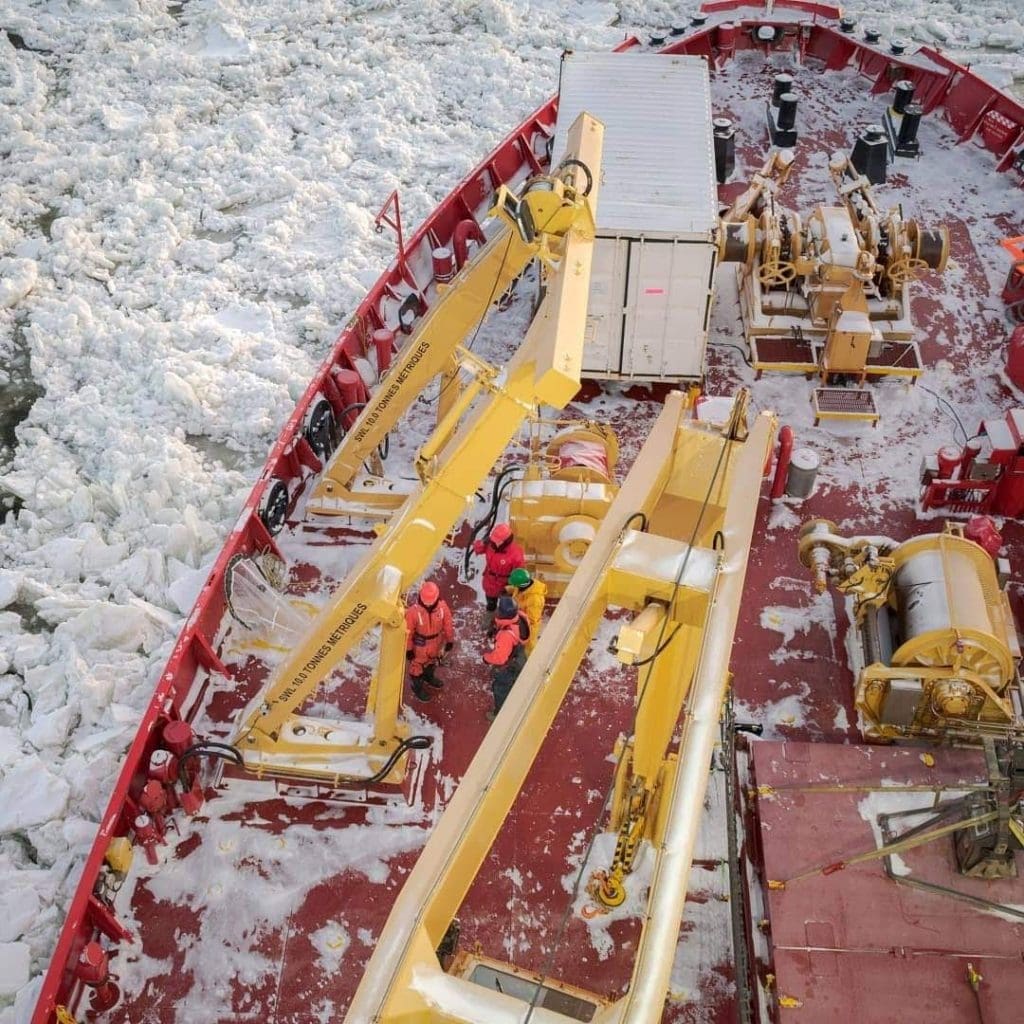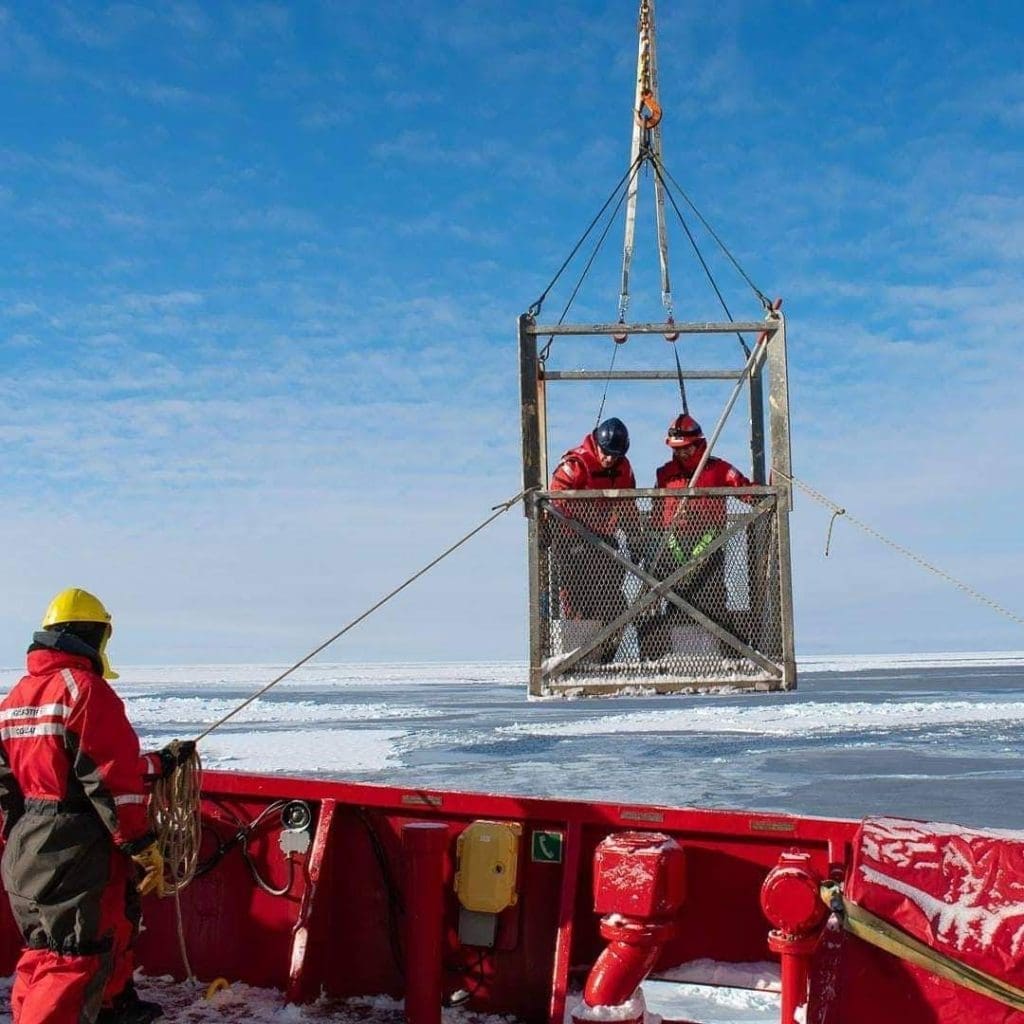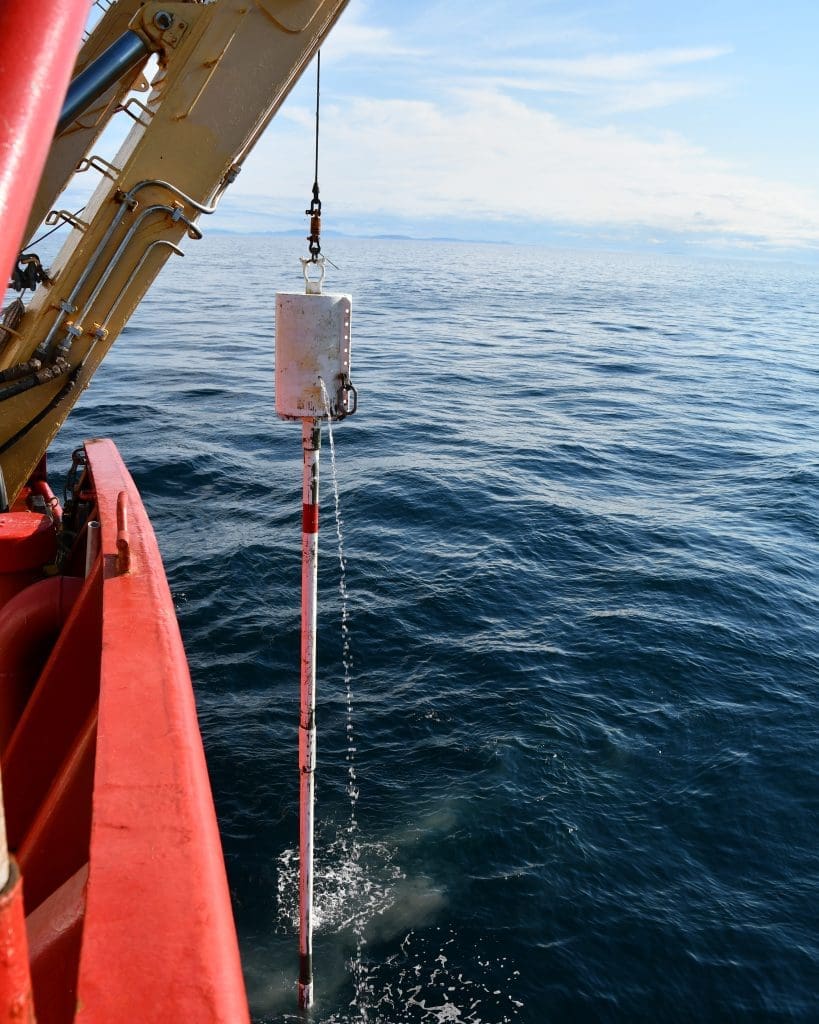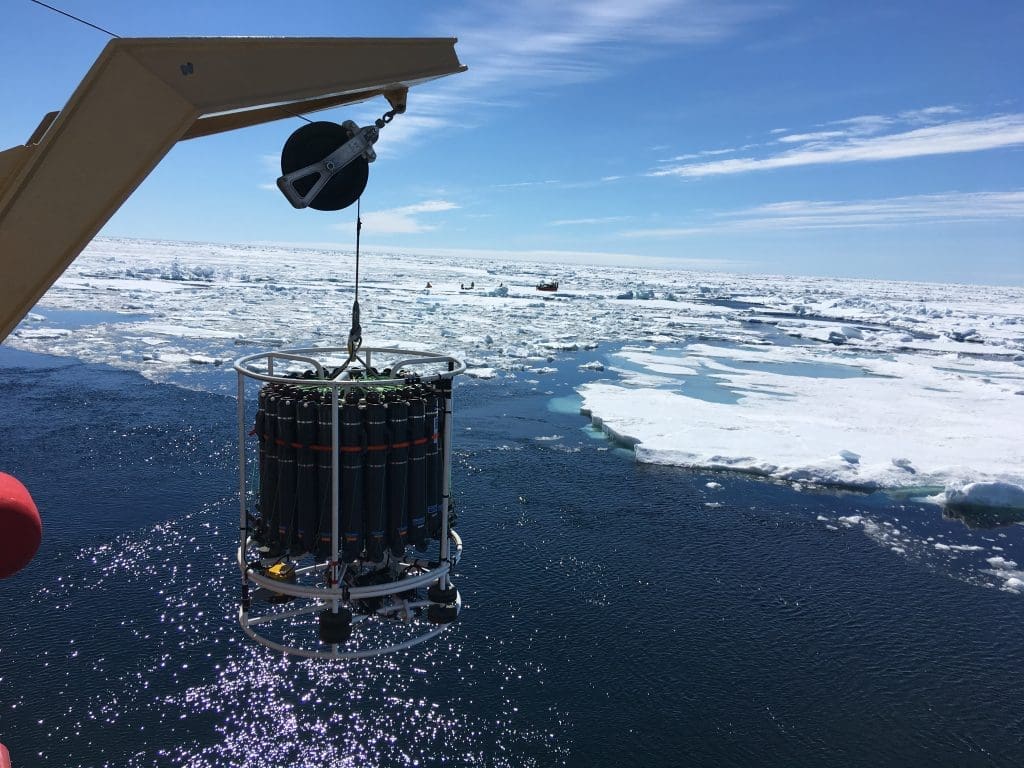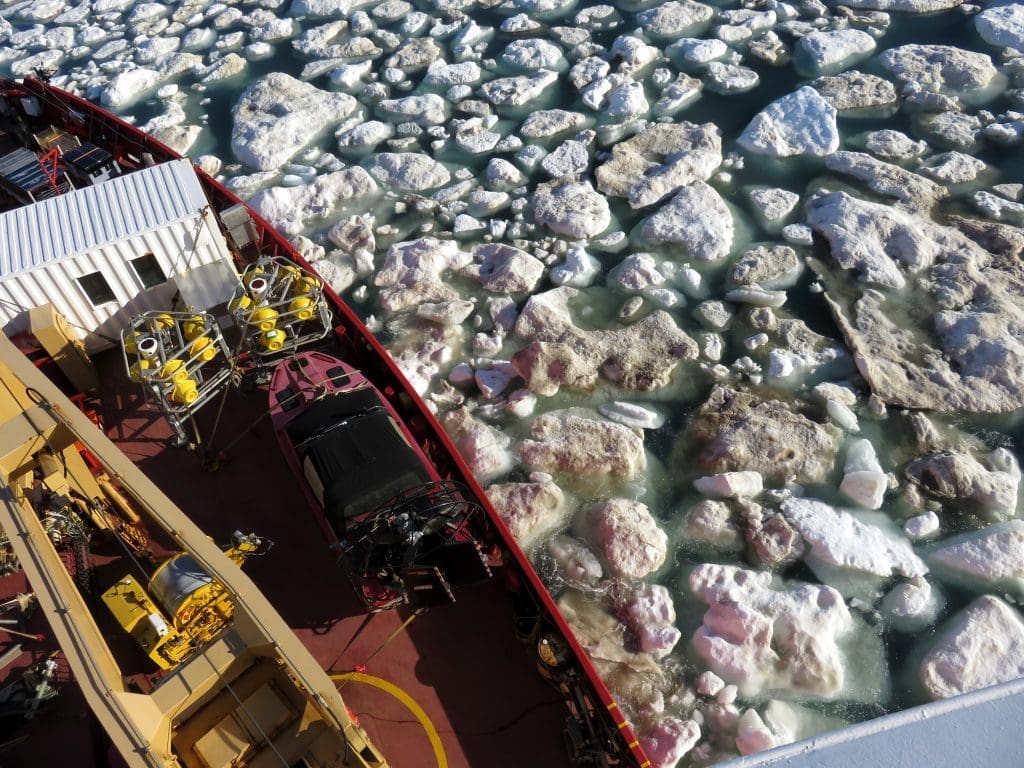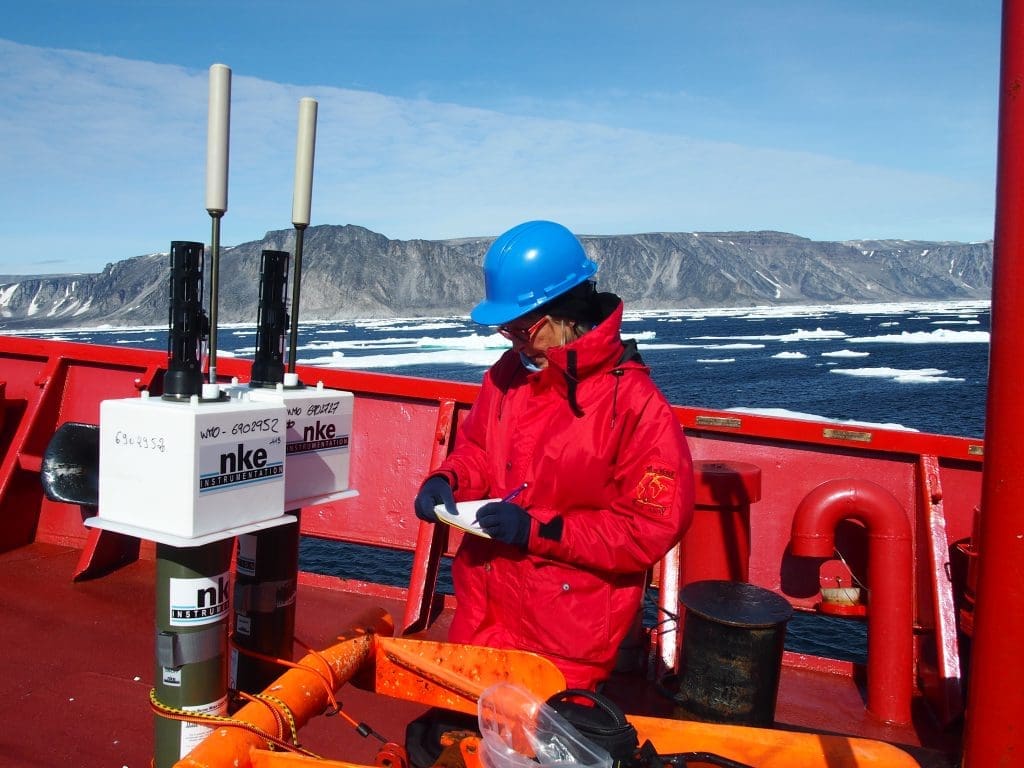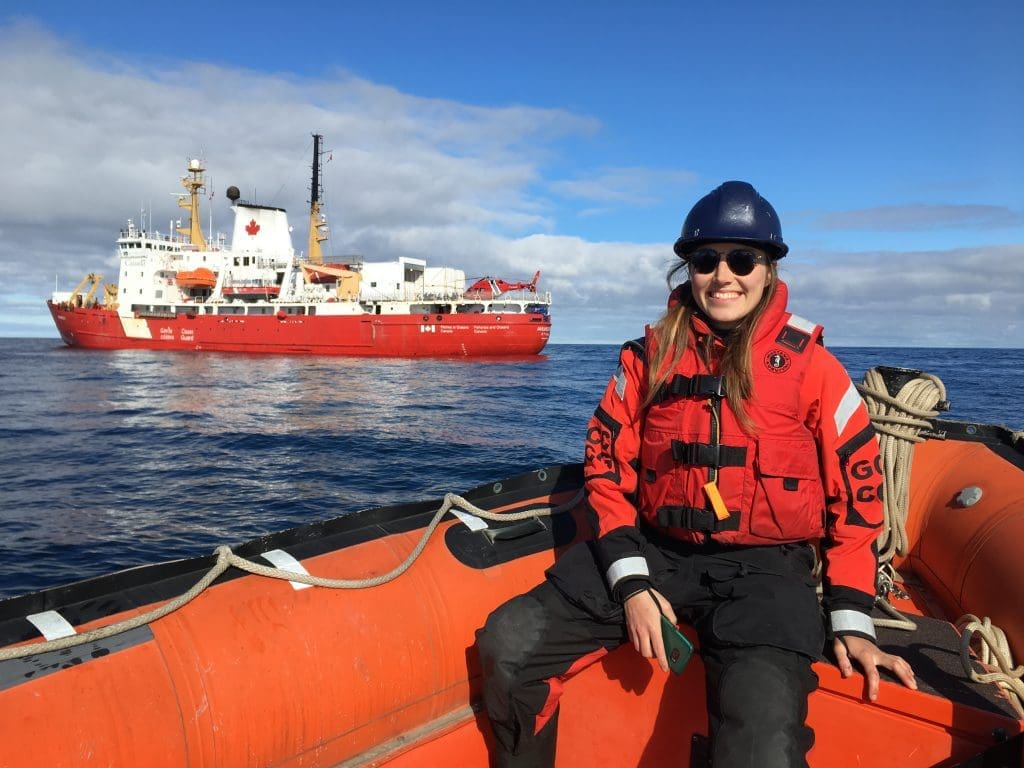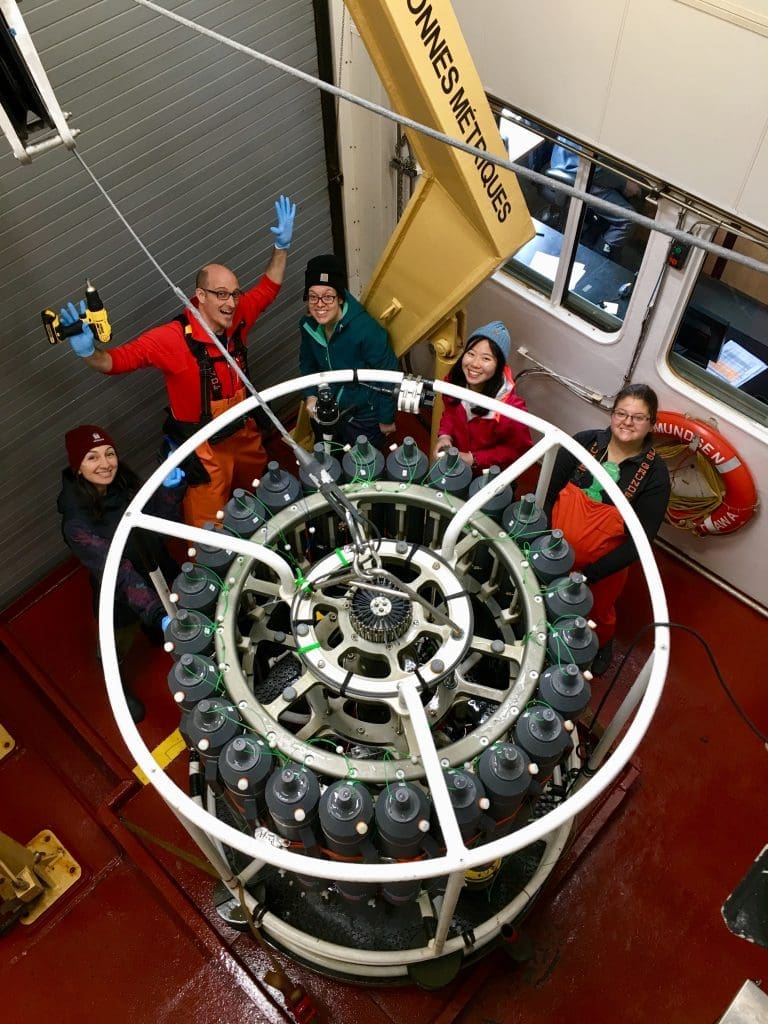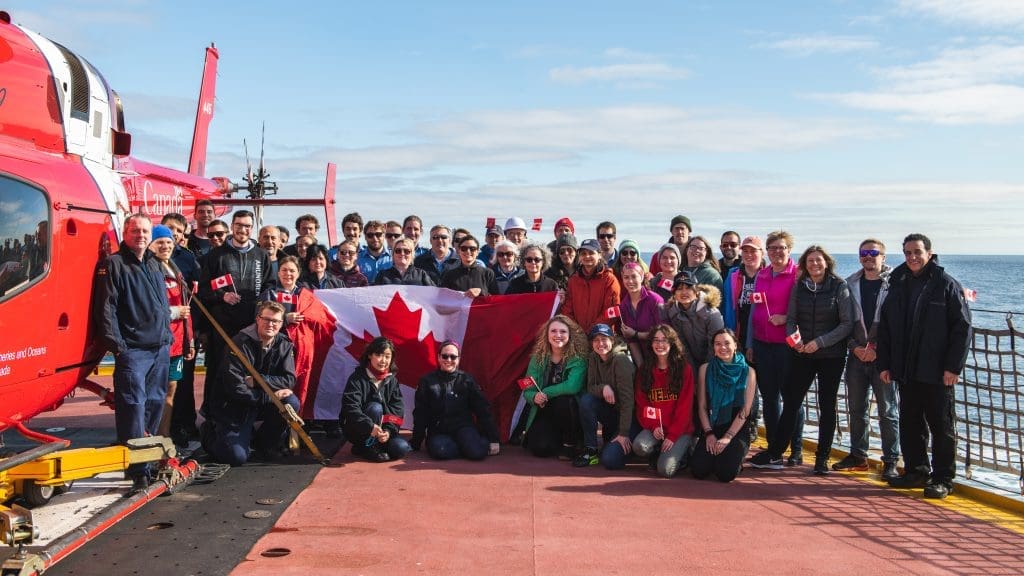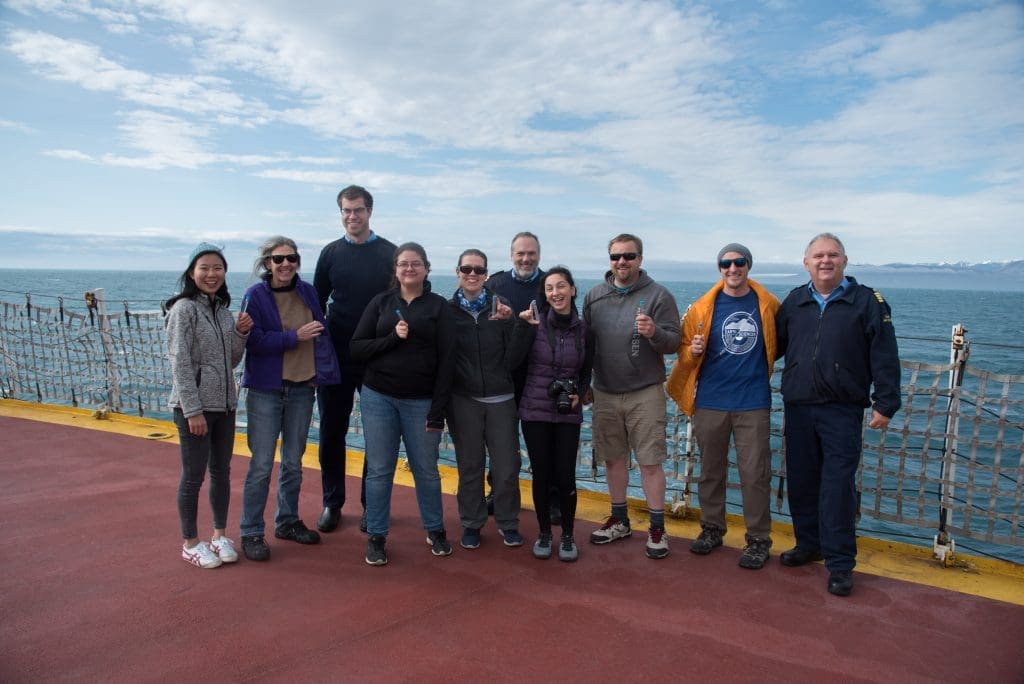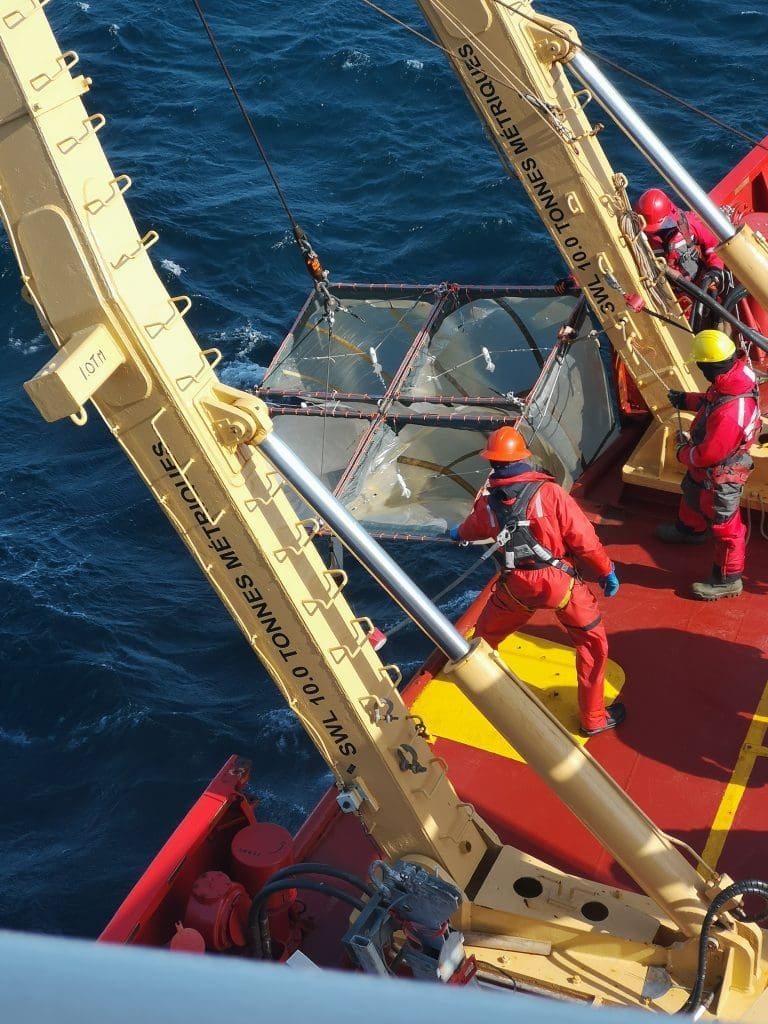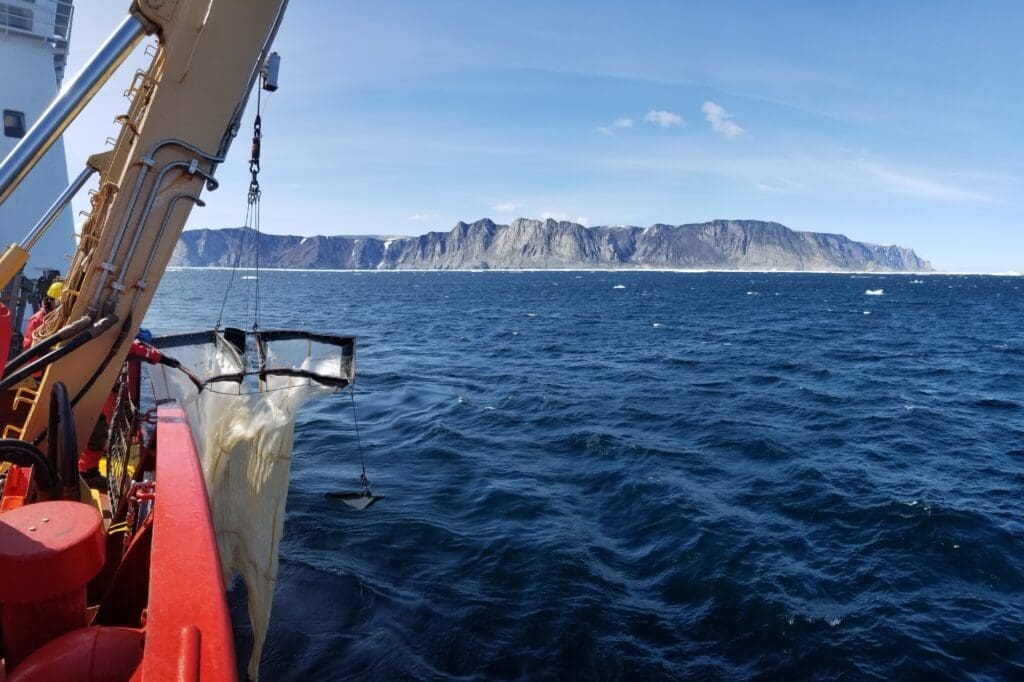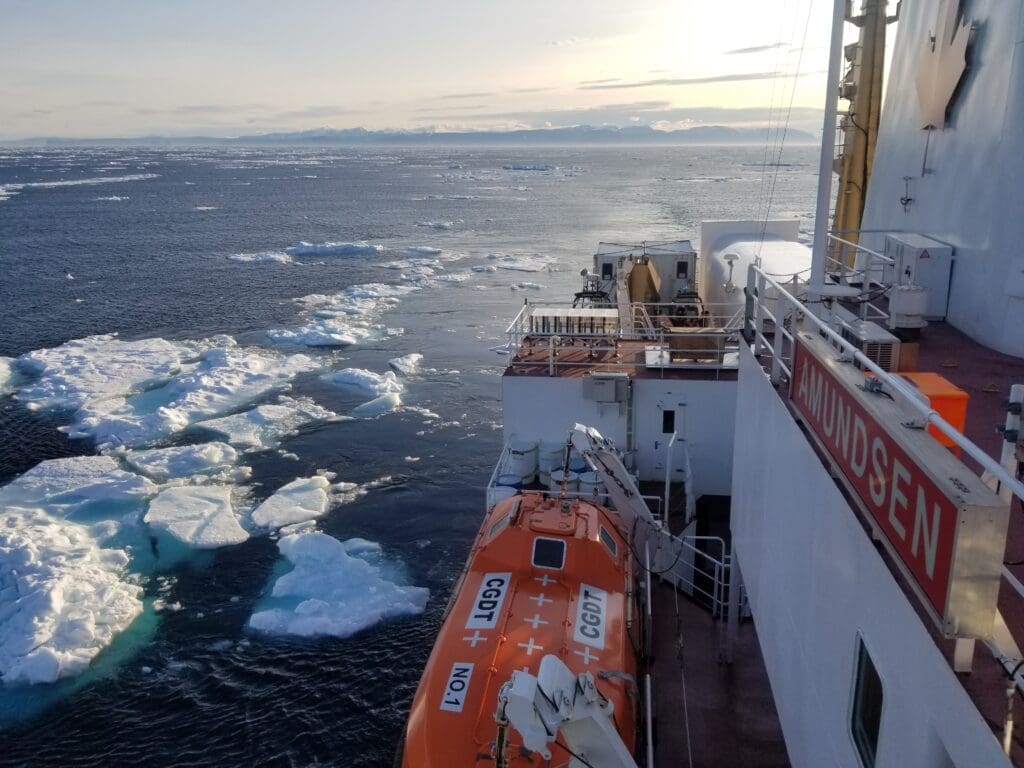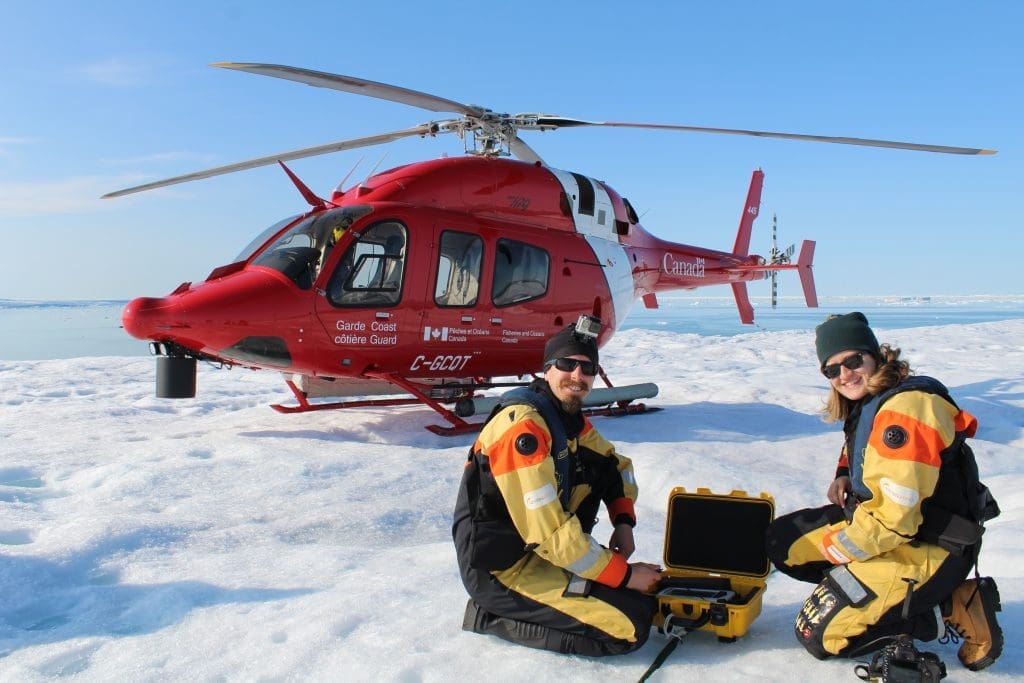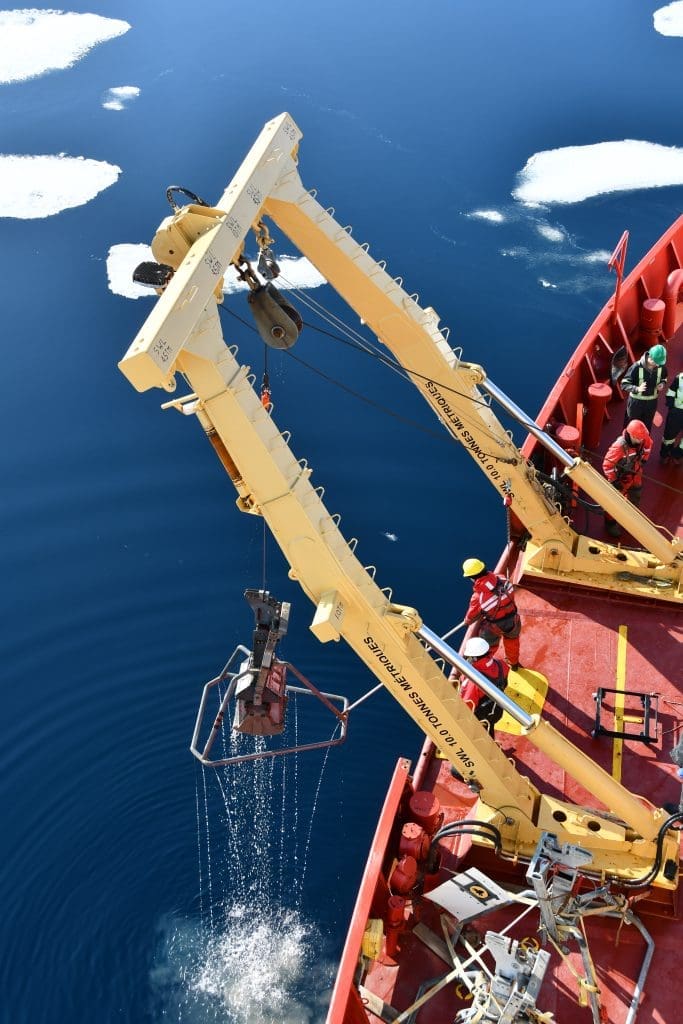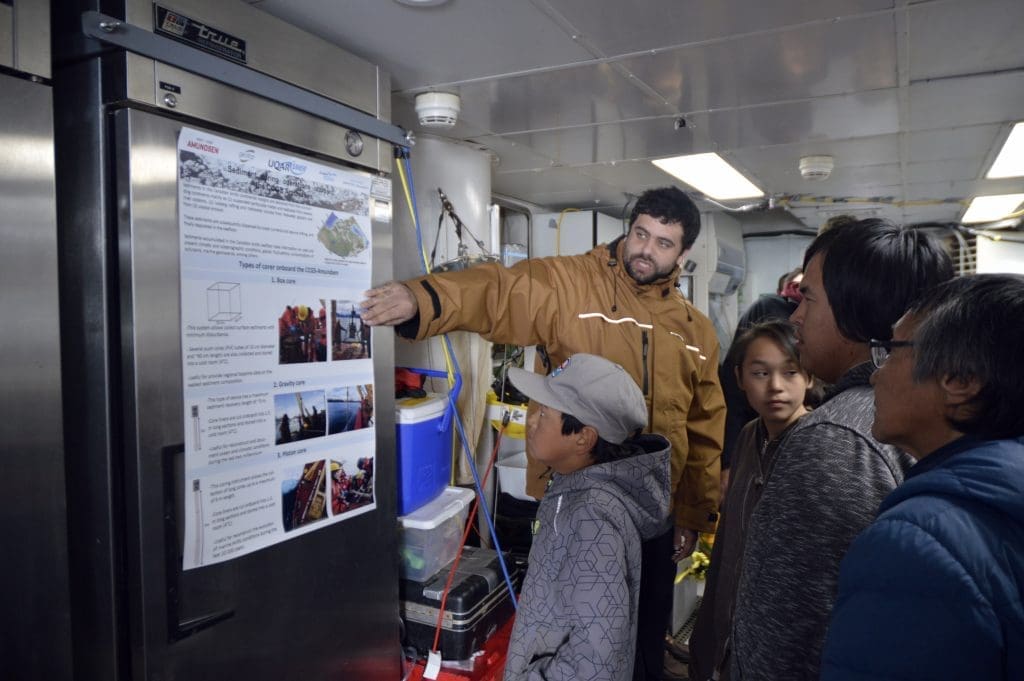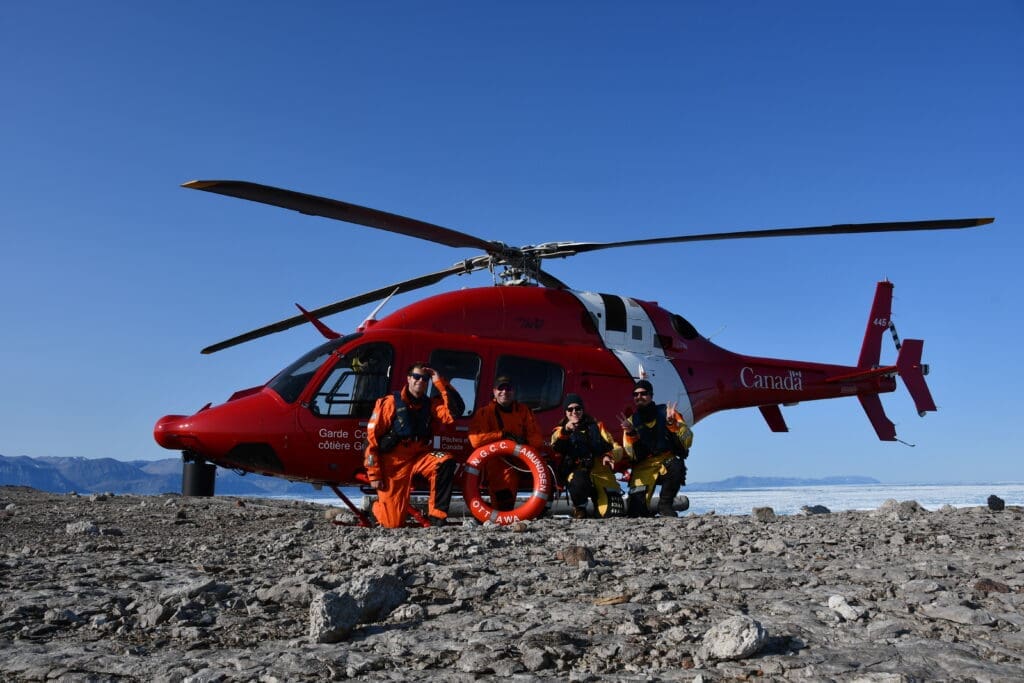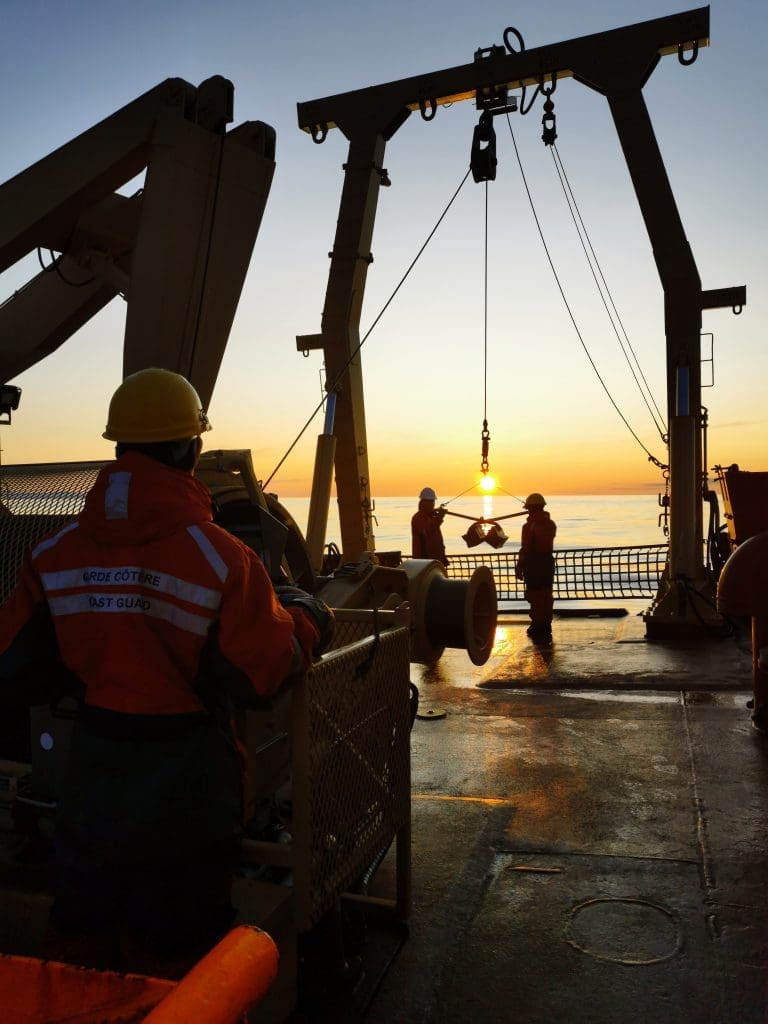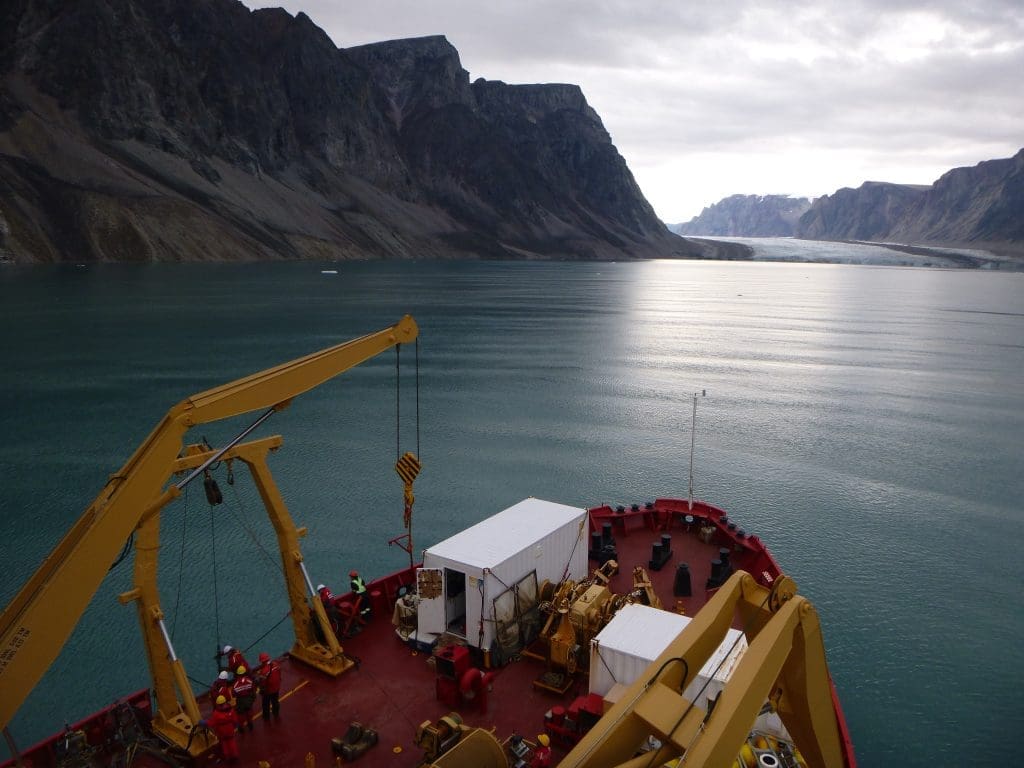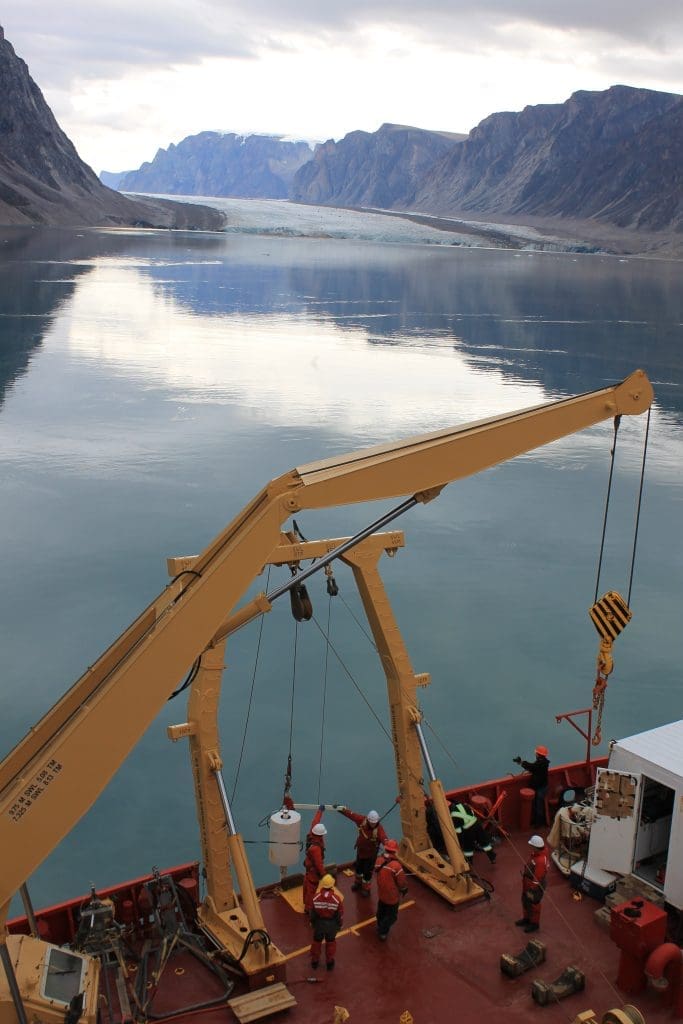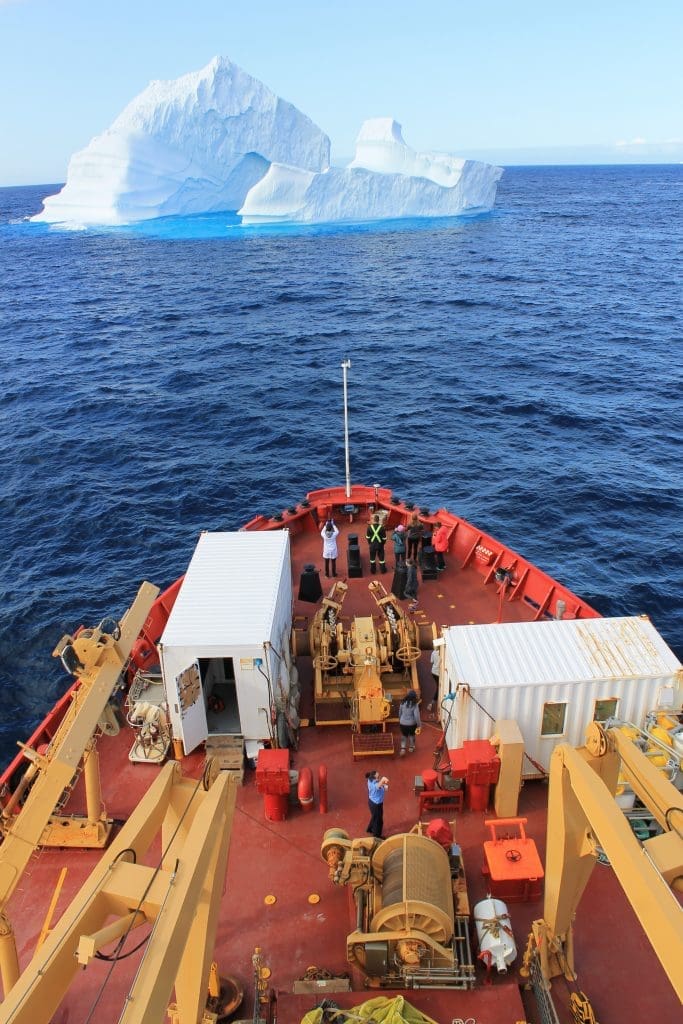Leg 1a – AZOMP
(30 May – 23 June) Québec City to St. Anthony
This Leg was dedicated to the Atlantic Zonal Off-Shelf Monitoring Program (AZOMP). This program led by Fisheries and Oceans Canada and involving collaborations with the universities of Dalhousie, Alberta, Manitoba, Québec à Rimouski, and Edinburgh focuses on the annual survey of the physical, chemical and biological properties of the AR7W oceanographic transect running from the Labrador to Greenland.
Leg 1b – ISECOLD
(23 June – 4 July) St. Anthony to Iqaluit
This Leg entailed oceanographic and seabed sampling as part of the Integrated Studies and Ecosystem Characterization Of the Labrador Sea Deep Ocean (ISE-COLD) program. This program co-led by Fisheries and Oceans Canada and Memorial University aims to guide the government of Canada in the determination of new protected marine areas by investigating a large offshore portion of the Labrador Sea.
Leg 2a – ARCTICNET/ SENTINEL NORTH / TAKUVIK
(4 – 25 July) Iqaluit to Pond Inlet
This Leg was conducted in the Baffin Bay in support of two different programs: ArcticNet and the Takuvik Bio-Argo project. ArcticNet comprises multiple sub projects ranging from ocean physics, geochemistry, to glaciers and marine ecology. Besides, oceanographic sampling, river sampling as well as Argo deployments and recoveries were conducted throughout this Leg.
Leg 2b – ARCTICNET/ SENTINEL NORTH
(25 July – 15 August) Pond Inlet to Resolute Bay
This Leg continued to support the multiple projects of ArcticNet. Scientists explored Nares Strait, Jones Sound, Lancaster Sound and the Baffin Bay through oceanographic and geologic sampling and glacier/iceberg operations.
Leg 3 – ARCTICNET/ DFO KEBABB
(15 August – 10 September) Resolute Bay to Québec City
This Leg took the ship from Resolute Bay to Quebec City with multiple science stations along the way. These stations supported additional ArcticNet projects and a collaboration with the Knowledge and Ecosystem-Based Approach in Baffin Bay (KEBABB) program to assess status and trends in ocean conditions that support living and fisheries resources.
